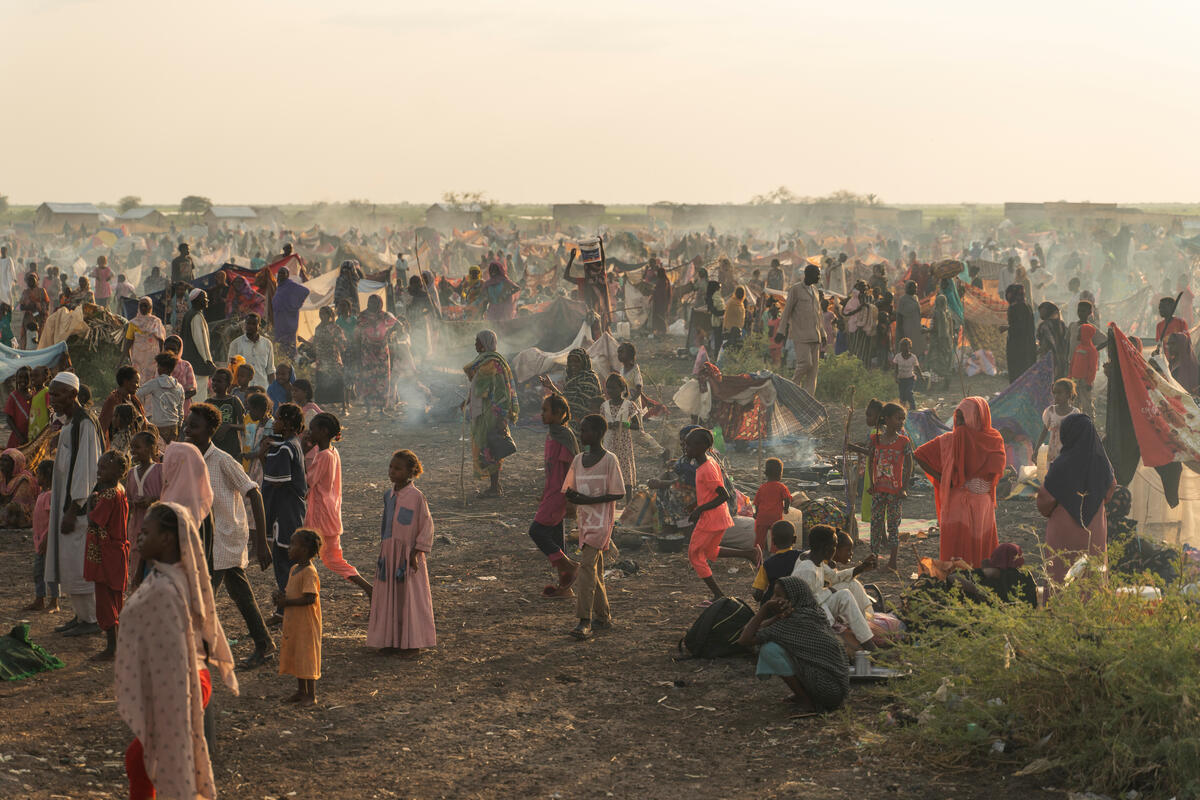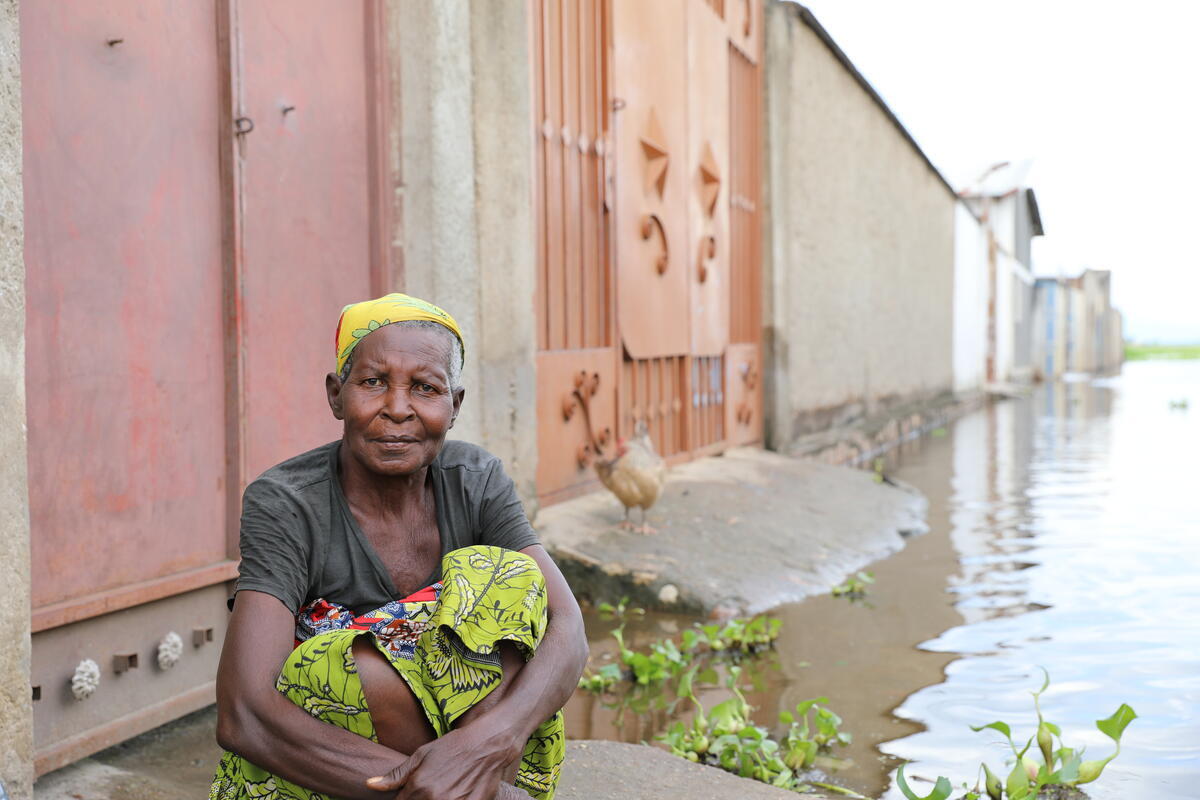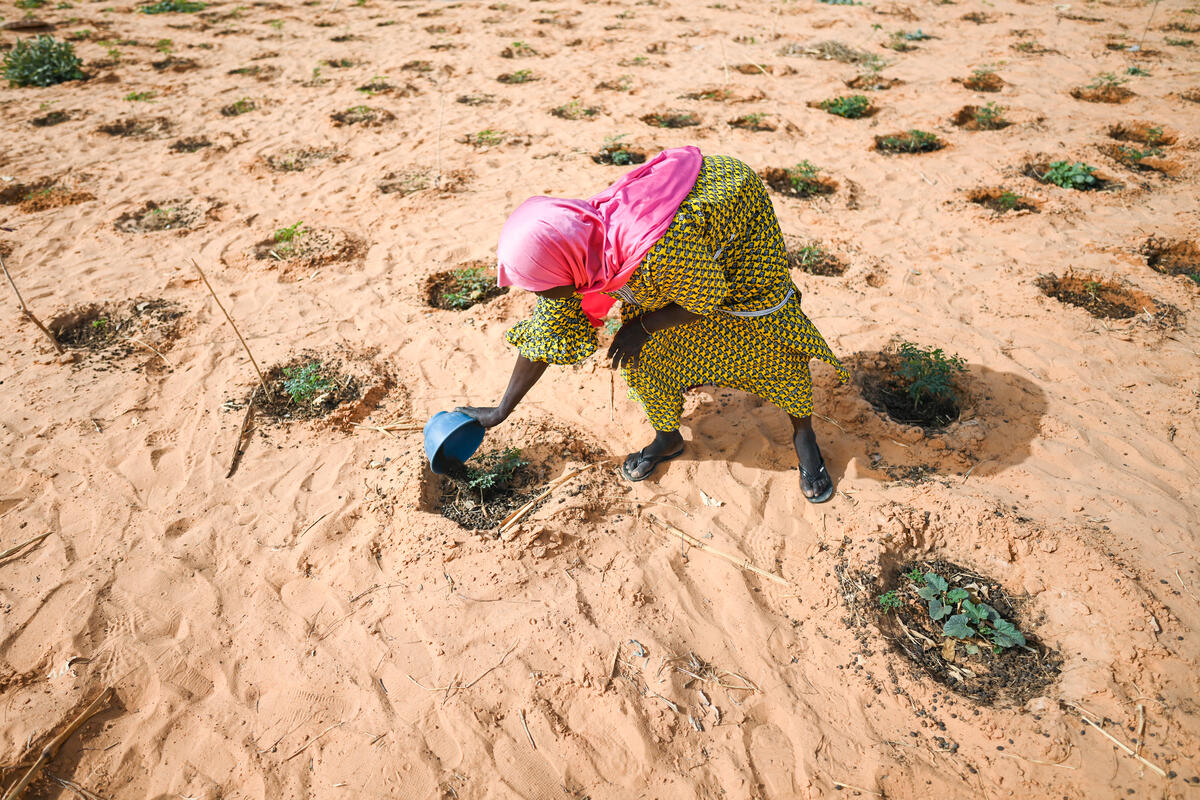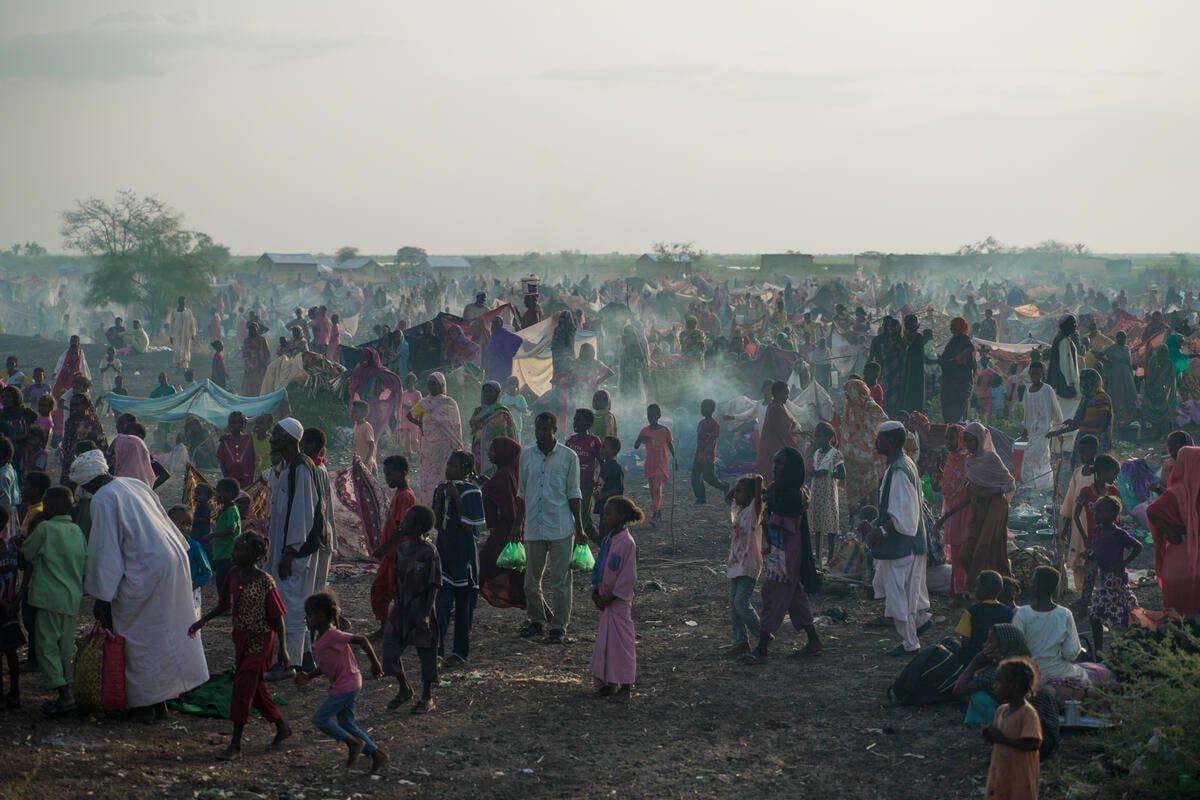Heavy Kenyan rains leave more than 23,000 refugees without shelter
Heavy Kenyan rains leave more than 23,000 refugees without shelter
KAKUMA CAMP, Kenya, Nov. 6 (UNHCR) - Four days of torrential rains and high winds at the Kakuma refugee camp in north-western Kenya destroyed over 7,000 huts, leaving more than a quarter of the camp population without shelter and raising serious health concerns for its 81,000 residents.
The downpour flooded latrines, affected camp water systems, and forced aid workers to suspend the distribution of a two-week ration scheduled to begin last week, UNHCR said Tuesday.
Kakuma, which hosts primarily refugees from The Sudan, is located in an arid region some 800 kilometres north-west of the Kenyan capital of Nairobi. The area normally receives about 500 millimetres of annual rainfall. UNHCR staff members called the recent heavy rains 'unprecedented.'
Because of the dry climatic conditions, family shelters are usually constructed of dried mud and branches, with thatch and plastic sheeting used for roofing. Many of the huts in the camp were old and could not withstand the heavy rains.
UNHCR rushed to distribute 1,500 plastic sheets, the entire camp stock, and is currently moving refugees into schools and other community centres as an emergency measure, with priority given to vulnerable families with children, elderly, or sick members. Each centre can hold up to 25 families and is equipped with water and hygienic facilities.
UNHCR said it is also dispatching trucks from Nairobi to Kakuma Tuesday with an additional 2,500 plastic sheets, 1,000 blankets, and seven tents. Another 2,000 pieces of plastic sheeting will be sent from regional stocks in Ngara, Tanzania. All of the refugees will receive blankets, clothes and stoves.
As UNHCR prepared to send additional staff to the area, food distribution resumed Monday and construction of new shelters at the camp was set to begin Tuesday.
Relief agencies and NGOs have begun digging new latrines and installing clean water distribution points on higher ground around the camp. Health workers were inspecting sanitation conditions and preparing a widespread immunization campaign in case it becomes necessary.








